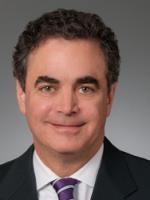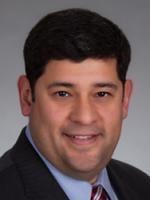On March 28, 2016, in an alarming decision in the Sun Capital litigation1, the Federal District Court ruled that two Sun Capital Funds2 together owning 100 percent3 of Scott Brass Inc. (SBI), were jointly and severally liable for the multiemployer pension plan withdrawal liability of SBI under the Employee Retirement Income Security Act (ERISA). More precisely, the Sun Capital Funds were assessed liability under the Multiemployer Pension Plan Amendments Act of 1980 (MPPAA) codified in the ERISA, Section 4203(a) in respect to the pension liabilities of their bankrupt portfolio company, SBI. Under MPPAA, to impose withdrawal liability on a private equity fund for the pension obligations of a portfolio company “two conditions must be satisfied: "1) the [fund] must be under “common control” with the [portfolio company], and 2) the [fund] must be a trade or business.” (emphasis added).4
The Sun Capital litigation commenced in 2011, and has now produced three decisions. The first decision of the District Court in 2012, favorable to the private equity fund industry, found no liability when a passive private equity fund invests in a portfolio company that goes bankrupt and cannot fund its multi-employer pension fund liability.5 In effect, the private equity funds won a temporary victory on the basis that they were not a “trade or business,” but were simply passive investors. This victory proved short lived.
On appeal, (in the second Sun Capital decision) the First Circuit Court of Appeals reversed, and found one of two Sun Capital private equity funds (Fund IV) liable for unfunded SBI pension liabilities, but sent the case back to the District Court for further determination as to whether or not the other Sun Capital Fund (Fund III) was also liable. Fund III and Fund IV appear to have been identical. However, the factor that made Fund IV clearly liable in the eyes of the Court of Appeals was evidence that Fund IV was not a mere passive investor in SBI. Rather, Fund IV was an “investor plus.” Proof of being an “investor plus” was active involvement in management of SBI by the funds in question evidenced by the combination of consulting fees paid to Sun Capital Advisors by SBI that, in turn, engendered management fee credits for the benefit of Fund IV. These management fee credits were critical to a finding of liability, under the “trade or business” test, and the District Court was then tasked on remand with inquiring into whether or not Fund III was also an “investor plus.”
In the most recent and third decision, the District Court has now found that both of the Sun Capital Funds were engaged in “trade or business,” by applying an “investment plus test.” The District Court decision highlights Sun Capital’s active involvement in the management and operation of SBI; refers to statements in the Sun Capital Funds’ offering documents stating that the funds would be actively involved with their portfolio companies; and also identified management fee credit “carry forwards” due to Fund III triggered by consulting fees paid to Sun Capital Advisors by SBI. The management fee credits earned by Fund IV and fee offset carryforwards enjoyed by Fund III were economic benefits that tipped the balance in favor of finding both funds to be engaged in a “trade or business.”
The District Court also found that the Sun Capital Funds created a “partnership-in-fact,” and the court thus aggregated the funds’ SBI holdings to meet the 80 percent ownership test required for controlled group liability under ERISA (even though no one fund owned more than 70 percent of SBI). The March 28, 2016, decision by the District Court established a mechanism, borrowing from income tax principles, through which the interests of private equity funds could be aggregated for determination of liability (based on the observation that the funds were essentially operated as one fund through the Sun Capital intermediary special-purpose limited liability company they used to invest in SBI). The factors the District Court highlighted in coming to this conclusion included the history of co-investments by the Sun Capital Funds, as well as their “identity of interest and unity of decision making” in the case of SBI.
The Sun Capital case appears to be a watershed for private equity funds and their investors, at least in the context of certain unfunded pension liabilities.
1 Sun Capital Partners III LP, Sun Capital Partners III QP, LP, and Sun Capital Partners IV, LP v. New England Teamsters & Trucking Industry Pension Fund, No. 10-10921-DPW (D. Mass. Mar. 28, 2016).
2 Sun Capital Partners III, LP and Sun Capital Partners III QP, LP (together “Fund III”) with Sun Capital Partners IV, LP (“Fund IV).
3 Fund III owns 30% and Fund IV owns 70% of the equity interests of SBI through an intermediary limited liability company.
4 Sun Capital, 724 F3d at 138.
5 Sun Capital Partners III LP, Sun Capital Partners III QP, LP, and Sun Capital Partners IV, LP v. New England Teamsters & Trucking Industry Pension Fund, 909 F. Supp2d 107 (D. Mass Oct 18, 2012), reversed, Sun Capital Partners III LP, Sun Capital Partners III QP, LP, and Sun Capital Partners IV, LP v. New England Teamsters & Trucking Industry Pension Fund, 724 F. 3d 129 (First Circuit July 24, 2013)







 i
i


